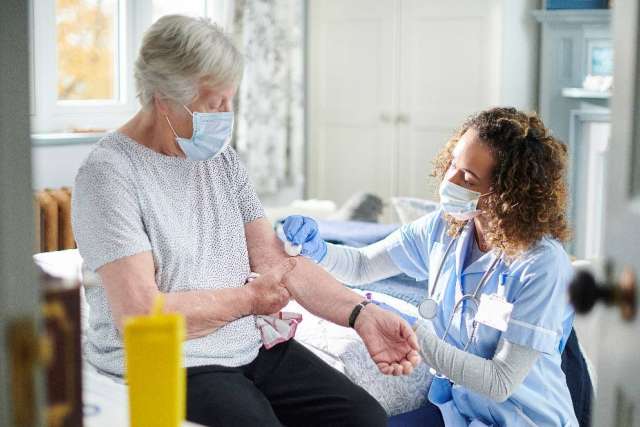Dear Doctors: Why do the elderly lose ground mentally when they go to the hospital? Our grandmother had emergency gall bladder surgery, and afterward she got so confused that she thought our grandfather, who passed away, was in the next room. It lasted for a few days, and it was scary.
Dear Reader: Although we can’t know the exact nature of your grandmother’s cognitive lapse, the type of confusion you describe isn’t unusual in older adults who have been hospitalized. Sometimes referred to as hospital-acquired delirium, it’s a temporary but severe form of mental impairment that affects up to one-third of patients over the age of 70, particularly those undergoing surgery or those in intensive care. The condition is marked by periods of confused thinking, jumbled memory, difficulty understanding speech, agitation, disorientation and even hallucinations.
These episodes of delirium are often interspersed with interludes during which the person is once again lucid. The duration of hospital-acquired delirium can be as brief as a few hours or, as with your grandmother, can continue for several days. In some cases, these fluctuations in awareness can last much longer. In addition to being upsetting to family members, the condition can hinder the patient’s recovery and lead to a general decline in health.
When you consider the many shocks involved with surgery and hospitalization, it’s not surprising that the experience can take a steep mental toll on older adults. Not only has the body endured the physical trauma of a surgical procedure, but the patient is also dealing with the effects of anesthesia and the drugs used to manage pain. Once the patient awakens, the hallmarks of their everyday lives have suddenly vanished. They find themselves isolated in a strange place, being cared for by an ever-changing array of strangers. The bright lights, constant noise, ongoing medical interventions and frequent interruptions of hospital life create a stressful environment. Adding to the burden are factors such as infection, dehydration, poor nutrition, anxiety, poor sleep and the potential side effects of multiple medications.

Treatment begins with basic care. That means making sure the person is hydrated, is getting enough nutrients and adequate sleep, and is warm, dry and comfortable. It’s also important to help them become oriented to their surroundings. This may sound obvious, but it includes making sure that they have and use personal items such as their eyeglasses, hearing aids or dentures. Each of these help to engage their senses, which lets them stay aware of the world around them.
Other things that have proven helpful are daily exercise, exposure to natural light, removing medications that are not absolutely essential and surrounding the person with familiar objects from their home life. A favorite sweater, a stuffed animal or an array of family photographs can provide visual and sensory cues. Music, which boosts brain activity, has been shown to relieve stress and anxiety.
And if the hospital allows visitors, try to go to spend time with your loved one. Patients feel vulnerable and alone in a hospital setting, and having a familiar and loving presence nearby offers great comfort.
(Send your questions to [email protected]. Owing to the volume of mail, personal replies cannot be provided.)





